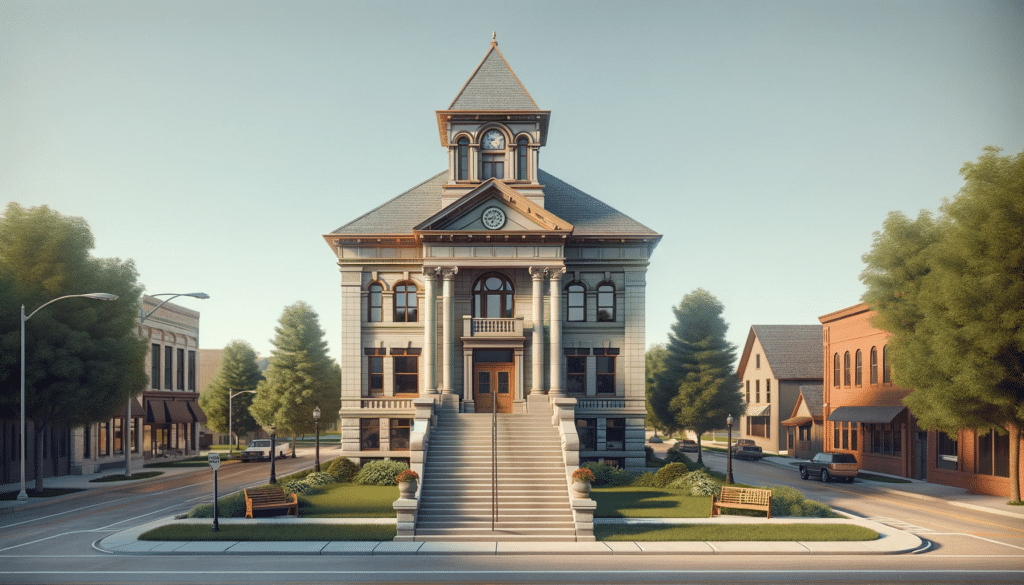Physical Address
304 North Cardinal St.
Dorchester Center, MA 02124
Physical Address
304 North Cardinal St.
Dorchester Center, MA 02124

Are you wondering about the divorce process in South Dakota? You’re not alone. Many people find themselves asking this question when they start this life-changing journey.
So, how long does a divorce take? Well, it’s not as simple as marking a date on your calendar. Factors like how well you agree with your spouse and what the law says play a big role. In this article, we’ll walk through these factors in a way that’s easy to understand.

We’re here to help make sense of it all, so keep reading to get a clearer picture of your journey through divorce in South Dakota. Let’s dive in together and explore what to expect.
When going through a divorce in South Dakota, there is a mandatory waiting period before the court can finalize the divorce. This waiting period is applicable to both contested and uncontested divorces.
In South Dakota, the waiting period is set at 60 days from the date of filing the divorce paperwork.
This waiting period allows both parties to have sufficient time to consider their decision and potentially work on resolving any outstanding issues before the divorce is finalized.
It provides an opportunity for mediation or alternative dispute resolution methods to be explored, which can help couples reach agreements without going through prolonged litigation.
The waiting period starts from the date of filing the divorce paperwork, not from the date of separation or any other significant event related to the divorce.
This means that even if both parties are in agreement and the divorce is uncontested, they will still need to wait for the 60-day waiting period to expire before the court can officially dissolve the marriage.
| Type of Divorce | Waiting Period |
|---|---|
| Contested Divorce | 60 days from the date of filing |
| Uncontested Divorce | 60 days from the date of filing |
If you’d like to find out about the costs involved in a South Dakota divorce, check out our article How Much Does a Divorce Cost in South Dakota.

The length of a divorce process in South Dakota can vary based on the type of divorce. An uncontested divorce, where both spouses agree on all major issues, is generally quicker and can be resolved within a few months.
On the other hand, a contested divorce, where spouses have disagreements that require court intervention, can take significantly longer, potentially extending the process to several months or even years.
In an uncontested divorce, both spouses are in agreement regarding the division of assets, child custody, visitation rights, and spousal support. This streamlined approach allows for a more straightforward process, often resulting in a quicker resolution.
By avoiding lengthy court battles and negotiations, couples can finalize their divorce within a shorter timeframe.
In a contested divorce, spouses are unable to reach an agreement on one or more significant issues. This can lead to prolonged legal battles and court hearings, significantly lengthening the divorce process.
The court’s involvement in resolving disputes, such as child custody, property division, and financial arrangements, can contribute to the extended timeline of a contested divorce in South Dakota.
| Divorce Type | Estimated Length |
|---|---|
| Uncontested Divorce | Approximately 3 to 6 months |
| Contested Divorce | Varies based on complexity, but can range from several months to years |

In South Dakota, the duration of a divorce can be influenced by several factors. Understanding these factors can help individuals going through a divorce in South Dakota anticipate potential delays and navigate the process more efficiently.
One factor that can affect the timeline of a divorce is the complexity of financial issues. Disagreements over property division, debt allocation, and spousal support can lead to lengthy negotiations and potentially even court proceedings.
If the couple’s finances are intricate or there are significant assets involved, it may take more time to reach a resolution.
Divorces involving children require careful consideration of child custody and visitation arrangements. When parents cannot agree on these matters, it can result in protracted court hearings and evaluations by professionals, such as custody evaluators or mediators.
Resolving these disputes can add extra time to the divorce process.
If minor children are involved in a divorce, establishing custody and support arrangements is a crucial step. This process involves determining where the children will live, visitation schedules, and financial responsibilities.
Negotiating and finalizing these arrangements can take time, as the court prioritizes the best interests of the children.
| Factors That Impact Timeline | Effect |
|---|---|
| Complexity of Financial Issues | Can lead to lengthy negotiations and potentially court proceedings |
| Disputes over Child Custody and Visitation | May result in protracted court hearings and evaluations |
| Establishing Child Custody and Support Arrangements | Requires negotiation and finalization based on the best interests of the children |
Every divorce case is unique, and the impact of the above factors will vary depending on the specific circumstances. Consulting with an experienced divorce attorney can provide personalized guidance and help individuals navigate the process effectively.
Divorce can be a lengthy and emotionally draining process. However, there are steps you can take to expedite the process and reach a resolution more quickly.
Here are some tips to help you speed up your divorce in South Dakota:
Before initiating the divorce process, it’s important to gather all the necessary documents and information. This includes financial records, property documents, and any relevant agreements or contracts.
Having these documents readily available will help expedite the division of assets and property, allowing you to move forward with the process more efficiently.
Mediation is an effective method to resolve disputes and reach agreements outside of court. By working with a neutral third-party mediator, you and your spouse can engage in open communication and negotiation.
Mediation can help you find common ground and streamline the decision-making process, ultimately reducing the time and expense of a lengthy court battle.
Working with an experienced divorce attorney is crucial to speeding up the divorce process in South Dakota. A knowledgeable attorney can guide you through the legal requirements, navigate complex paperwork, and ensure that your interests are protected.
They can also leverage their expertise to negotiate effectively on your behalf, potentially avoiding prolonged litigation.
| Advantages of Speeding Up the Divorce Process | Disadvantages of Prolonged Divorce |
|---|---|
|
|
By following these steps and seeking professional guidance, you can help expedite the divorce process in South Dakota. Remember, each divorce case is unique, and it’s helpful to consult with a divorce attorney who can provide personalized advice based on your specific circumstances.
If you have children and are going through a divorce in South Dakota, there are additional considerations and steps involved in the process.
South Dakota courts prioritize the best interests of the children when determining child custody and support arrangements.
In a divorce with children, establishing child custody arrangements is a key aspect of the process. South Dakota courts consider various factors, including the child’s relationship with each parent, their preferences (if appropriate), the ability of each parent to provide for the child’s needs, and any history of domestic violence or substance abuse.
You’ll want to work towards a custody agreement that is in the best interest of the child and promotes their overall well-being.

Child support is another key element in a divorce with children.
South Dakota follows specific guidelines for calculating child support, taking into account factors such as the income of both parents, the number of children, and any special needs or expenses. The goal of child support is to ensure that both parents contribute to the financial support of their children.
| Child Custody Arrangements | Child Support Guidelines |
|---|---|
| Physical custody refers to where the child primarily resides. It can be sole or joint custody. | The non-custodial parent is typically required to pay a percentage of their income as child support. |
| Legal custody refers to the right to make important decisions regarding the child’s welfare, such as education, healthcare, and religion. | Additional expenses, such as medical insurance, daycare, and extracurricular activities, may be factored into the child support calculation. |
Work with your attorney to ensure that child custody and support arrangements are fair and in the best interest of your children. They can help guide you through the legal process and advocate for your rights as a parent.
Now that you have a better understanding of the divorce process in South Dakota, you can navigate this challenging time with confidence. Remember, there is a waiting period of 60 days from the date of filing, even for uncontested divorces.
The length of your divorce will depend on whether it is uncontested or contested, with contested divorces potentially lasting months or even years.
To see how the timeline of a divorce in South Dakota compares to how long it takes in other states, check out our articles about how long does a divorce take in Nebraska and the divorce timeline in North Dakota.
The duration of a divorce in South Dakota can vary depending on various factors. It can generally take a few months for an uncontested divorce and longer for a contested divorce.
Yes, South Dakota requires a waiting period of 60 days from the date of filing the divorce paperwork before the court can finalize the divorce, even for uncontested divorces.
An uncontested divorce, where both spouses agree on major issues, can generally be resolved within a few months. A contested divorce, which requires court intervention, can take significantly longer, potentially extending the process to several months or even years.
Several factors can impact the timeline of a divorce in South Dakota, including the complexity of financial issues, disputes over child custody and visitation, property division, and spousal support. The presence of minor children in a divorce can further complicate the process.
To expedite the process, you can reach a mutual agreement on major issues, gather all necessary documents and information ahead of time, and work with an experienced divorce attorney who can guide you through the process efficiently.
Divorces involving children require additional considerations and may take longer to finalize. South Dakota courts prioritize the best interests of the children in determining child custody and support arrangements. It’s crucial to work with an attorney who specializes in family law to navigate the complexities of divorce with children.
Familiarize yourself with South Dakota divorce laws, including the residency requirements and necessary paperwork. It’s recommended to consult with a divorce attorney to ensure compliance with all applicable laws.
Hiring a divorce attorney is advisable, especially for complex or contested divorces. An experienced attorney can provide guidance, handle the legal paperwork, negotiate on your behalf, and protect your rights and interests throughout the divorce process.
Yes, mediation or alternative dispute resolution methods can help couples resolve their differences outside of court. These methods promote cooperation and communication, potentially reducing the time and cost involved in the divorce process. Consult with a divorce attorney to explore the option of mediation or alternative dispute resolution in South Dakota.
Understanding the timeline and process of a divorce in South Dakota is crucial for individuals going through this challenging life event. It allows for better preparation, compliance with legal requirements, and the ability to navigate the process more efficiently. Consulting with a divorce attorney provides personalized guidance throughout the process.